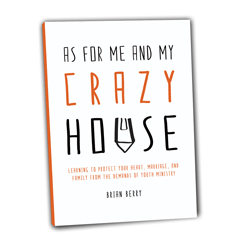- I live in the suburbs.
- I’m white.
- I own a large car, sometimes called an SUV.
- I do not have my own garden where I grow corn in my backyard or the empty lot next to my house.
- I’ve never lived in the city.
- I spend more money on my families groceries than I do on groceries in other parts of the world
- Did I mention I live in the suburbs where my wife and 3 kids and I go to hide from the problems in the real world.
- Because I have not sold my house in the suburbs to move into the city where the truly Godly people live.
- I sponsor a child in Uganda through World Vision, so I can pretend I care.
- I do missions trips and work with the poor only in brief manageable stints so I can make myself feel good and then go home to my safe suburb.
Where is this post coming from? It’s in part how I felt after reading Shane Claiborne’s Irresistible Revolution about a year ago when he speaks of finally meeting a “real Christian” who actually believed Jesus and truly sold all he had and lived among the poor in Calcutta. It’s also how I felt after stumbling onto this blog today.
The real truth is I’ve been wrestling with what it means to love God and serve people, especially in the area of finances for a while now. We actually even spent all our small group time today talking about how we cannot claim to be Godly and then not give a rip about those who are less fortunate than we are. We talked about how to do this practically today and what it was like to live under the constant tension between enjoying the things God’s given me and not doing so at the expense of not serving the needy. I really don’t want to be American Christian who hides behind luxuries and throws a bone to the Lazarus’ of the world.
But I’m tired of reading stuff- satirical or otherwise- that implies or outright states that Godliness comes from those who live in the city. I think it smells of elitism and legalism under the disguise of piety and faith.
 Husband. Dad to 5. Student Ministry Pastor. Follower of Jesus. Yatta yatta.
Husband. Dad to 5. Student Ministry Pastor. Follower of Jesus. Yatta yatta.



Sounds like you might be feeling a bit convicted. Should you? Maybe, maybe not. Perhaps read Jesus For President and then read Irresistible Revolution once more, as it seems there might be some information you’ve missed there.
I almost didn’t publish this comment because it was anonymous. I left it because I think it’s part of the story. There are a large contingent of people in the Christian community who care about social justice who also see only one way to do that. I wonder if the “convicted” is a two way street?
Interesting Brian. I just heard of this book yesterday, the same day you posted this – but from a totally different source. I’d like to read the book. I think it will help me think outside the box a little, even if I don’t wholeheartedly agree with everything.
It’s a good read. Lots of it I did agree with. There were parts that moved me and parts I disagreed with. I only finished about 75% of it before it was stolen in my backpack with our car break in. I have not bought another copy yet.
I wrote that article. I’m sorry that the article struck you as elitist. The down side of satire is that it plays off of stereotypes. It was never my intention to imply that people that live in the suburbs are less Christlike than people who live in the city. I don’t believe that at all.
But here’s the thing. While I don’t believe that living in the city makes one anything special, I DO believe that ministry to the poor is non-negotiable. And why is it that so many churches in the suburbs think that poverty is an urban issue? Why do so few of these churches actively engage in ministry to the poor in their context? Instead, they tend to think of poverty as something happening somewhere else. So often, poverty is dealt with indirectly, not through personal contact.
Doesn’t it seem strange, even a little, for someone who apparently enjoys the prosperity of the suburban American dream to accuse poor urban ministers of being elitist? My article satirizes the stereotypical suburban Christian mindset, not Christians who happen to live in the suburbs.
Where are the poor among you? Where are the marginalized and broken? They are everywhere. Don’t think for a moment that you need to move into the city. So many people have begun to do that in my city that urban property values have raises substantially (its called gentrification). Meanwhile, the poor have had to go find apartments in the burbs. There are more people living in poverty in teh suburbs in my city than living in the urban areas.
Mark,
I agree. It’s impossible to claim to love God and not have a passion for the poor, orphaned, widows, hurting and the like in our local and global community. It is NON-NEGOTIABLE. I cannot claim to love God and ignore the least of these. It’s painfully obvious in the scriptures.
I’m striving hard to care for all kinds of people in my community, the homeless on our “suburban streets” and the hurting in our community. I think most, if not all Americans are rich- at least richer than billions on the planet, no matter what our social status or the car we drive or the types of things we own. I don’t live in teh suburbs or own the cars I do for social status or any of the numbered reasons at the top of this post. And over a cup of coffee, we could probably find a lot of kinship in our passions.
I’m always wrestling in my life with not wanting to be allow this materialistic culture to be my god. I think that’s a struggle that all God-fearing men and women must confront in the city and the suburbs and the farms and the slums.
As a result, I also think pain and separation from God crosses all economic barriers. I think God cares for all those lost sheep who are far from him. While my richer-than-the-homeless-guy neighbor may have more money, he’s just as desperately in need of God. I cannot care for the poor more than those with wealth. I think God hurts for all in bondage with sin.
As for the accusation of elitist. I suppose it may seem economically ironic, but my statement was not an economic one. I think there is a clear tide in a lot of the current Christian literature I’ve read that does a one-to-one ratio between those who really love the poor and those who live in the city. I think that is one subset of believers claiming to have the corner on a truly Godly view or social justice. That is what I meant by elite.
But either way, I have not arrived. In some ways, I hope I never do. I pray the fight to enjoy what God has given without worshiping it or hording it, never goes away.
serving Jesus with you,
Brian
I think it’s amazing the kind of talk going on here… and for MVS to join in on the discussion feels refreshing to me. It wasn’t enough to write a manifesto and run; he continues the dialogue.
However, his comment, “My article satirizes the stereotypical suburban Christian mindset, not Christians who happen to live in the suburbs…” doesn’t sit well with me. To even satirize it, in my opinion is to (at least somewhat) agree with it. And for anyone to assume they understand what one person thinks (let alone a group of them), seems a bit arrogant.
Wouldn’t it be better if people were just straight out asked, “Do you really care about poor people? Because by the house you live in, the car you drive, and the fact that you spend more on your kids’ birthday parties than one person in the county of Chad makes all year, makes it seem like you don’t”.
I could try to explain myself further and try to not only defend myself but seem to assure you that there was no real malice behind my words. But instead, I figure, why not apply my satirical mind to my own context?
Check it out
Personally I saw both satires (http://www.jesusmanifesto.com/2008/05/06/hey-i-care-about-those-poor-people-too/) and (http://www.jesusmanifesto.com/2008/05/15/not-as-much-as-i-do-a-response-to-chad-ellens/) as necessary escapes from one’s box of presupposed beliefs.
I meet far too many people who believe their method of helping the poor and downtrodden is revolutionary when in reality it was a compromise that got justified when the sacrifice became scary. Whether that is the sacrifice of going out and getting a job (Derek Andrews) or getting out and relating to those in need (Chad Ellens) is irrelevant – in both cases it requires stretching uncomfortably.
Peace